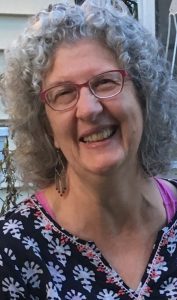
As some of you know, I used to be a professional singer; my bachelor’s degree is in Music Education. Growing up, I was always known as the girl with the loud voice. Not only did I feel accepted when I was in school choruses, I felt special, too. I was selected for solos and received good parts in the school musicals, all because of my voice. I became protective of my voice, and admit to being a bit of a “diva” about it. My voice was and continues to be a huge part of my identity.
It is also a part of my father’s identity; he’s a minister. He had a rather booming voice that could attract the attention of a large crowd. His voice compelled people to listen. As he began to age, he still had a resonant voice and enjoyed participating in the choir and being an itinerant preacher. The coughing from his illness, however, took a toll on his voice and he began to shrink from participation in choir and preaching because his voice was no longer viable. Even though he could have participated in other ways, and was encouraged to do so by family and friends, he chose not to and is mostly homebound now.
Our identities, my father’s and mine, are tied to these small pieces of muscle and tissue.
But that brings me to “My Voice, Our Voice.” My inner voice is just as unique as my physical voice. My voice now is changed because of my 16 years of experiences at Ethical Culture. My inner voice has changed as I consider different sides of an idea, as I reluctantly admit that I said something uncharitable that certainly did not bring out the best in others, as I try to value the inherent worth and dignity of everyone. I’m absolutely not perfect, and I don’t think that’s the aim of Ethical Culturists. But the inner dialogue I have now moves me in the direction of making the world a better place, a more decent place, for all its inhabitants. And My Voice is amplified by Ethical Culture to become Our Voice and I am more hopeful about the future because of it.
Susan Lesh is president of the Ethical Culture Society of Bergen County.


